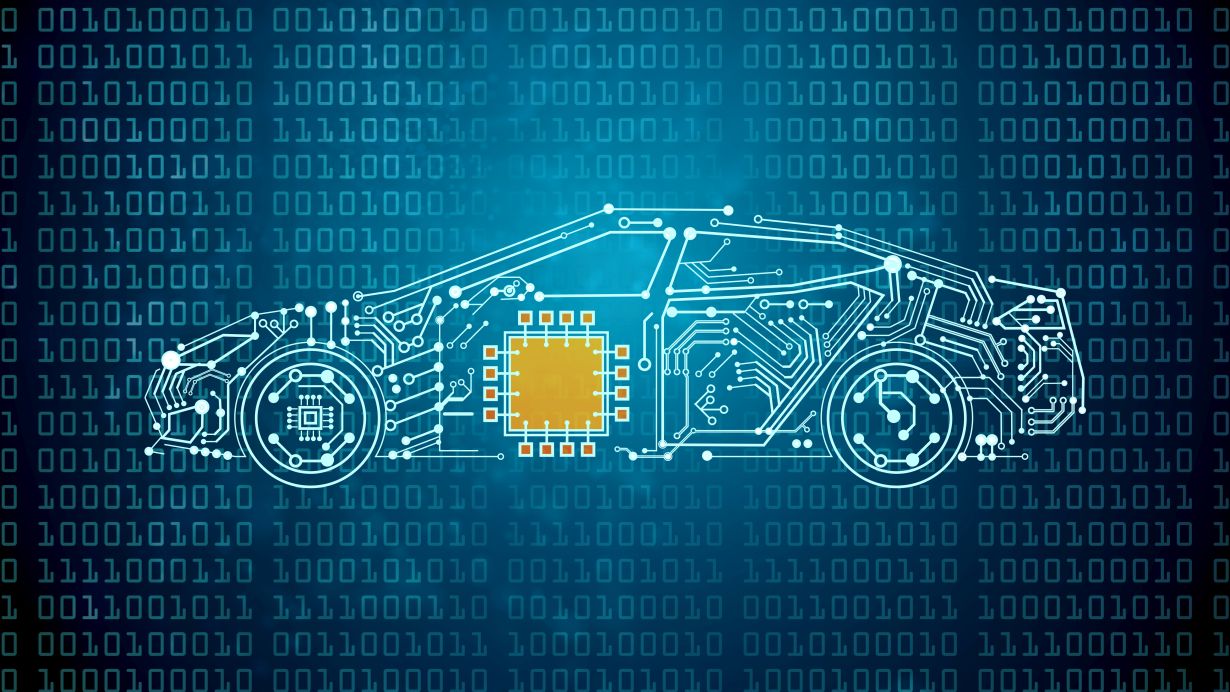Mobility: High-performance computers control cars of the future

The highly automated and connected cars of the future will need powerful computer systems that perform sophisticated calculations and process huge amounts of data. To this end, 30 partners from industry and research are developing suitable processors, interfaces and system architectures in the CeCaS project. The Karlsruhe Institute of Technology (KIT) is involved in the project coordinated by Infineon with two institutes. The German Federal Ministry of Education and Research is funding CeCaS within the MANNHEIM initiative.
The next generations of vehicles will be increasingly automated and networked to move more and more autonomously in road traffic and gradually relieve drivers. This requires enormous computing power, which only the most powerful computer systems in each case can provide - whether in the vehicles themselves, along the roads or in higher-level data centers. In addition to internal communication systems and those connected to the outside world, vehicles need a central computer. This, in turn, consists of subcomponents that have to perform sophisticated calculations, process huge amounts of data, and achieve maximum reliability.
KIT and TUM have assumed scientific coordination
In the CeCaS (CentralCarServer) research project, 30 partners from industry and research are working on architectures, software engineering principles, and implementation forms for future high-performance computers in cars. The overall project is coordinated by Infineon Technologies AG. KIT with Professor Jürgen Becker, head of the Institute of Information Processing Technology (ITIV), and Professor Jörg Henkel, head of the Embedded Electronic Systems research area at the Institute of Computer Engineering (ITEC-CES), and the Technical University of Munich (TUM) with Professor Alois Knoll, head of the Chair of Robotics, Artificial Intelligence, and Real-Time Systems (AIR), have assumed scientific coordination.
"The development of energy- and cost-efficient high-performance computers with full automotive qualification, which can meet the enormous demands on computing power and complexity in a scalable manner, contributes decisively to the future viability and technological sovereignty of the German automotive industry," says Becker. CeCaS is developing automotive supercomputing that meets the highest standards of security and reliability. The project consortium is designing processors, interfaces and system architectures for this purpose. A flexible software environment will be tailored to the requirements of the latest algorithms in automobiles - especially, but not only, for the use of artificial intelligence (AI).
Hardware accelerators enable highly effective image processing
In CeCaS, KIT has taken on the design of novel multi-purpose hardware accelerators for highly effective image processing including integration of reliable AI in automobiles. The novel accelerators are connected via high-speed interfaces and integrated into high-performance processors. In this context, the researchers are particularly focusing on the AI components between the sensor nodes and the central computer. In addition, KIT is working within CeCaS on new development tools for analyzing and complying with real-time criteria as well as on comprehensive benchmarking software for evaluating the hardware accelerators.
"Progress in automotive technology is directly dependent on progress in computing and informatics - but above all on the automotive industry's ability to exploit modern chip technologies for its own benefit," explains Becker. "CeCaS is helping the German automotive industry continue to play a leading role in global competition in the digital age."
About CeCaS
The German Federal Ministry of Education and Research (BMBF) is funding CeCaS with around 46 million euros as part of its MANNHEIM initiative, named after the birthplace of the automobile. The total project volume is just under 90 million euros. CeCaS is scheduled to run for three years.
The 30 cooperation partners in the MANNHEIM-CeCaS project are: Bosch, Continental Automotive, ZF Friedrichshafen, Hella, AVL Software & Functions, Ambrosys, Infineon Technologies AG (coordination; with Infineon Technologies Dresden GmbH & Co. KG and Infineon Technologies Semiconductor GmbH), Kernkonzept, Berliner Nanotest und Design, Missing Link Electronics, Inchron, Glück Engineering, STTech, Steinbeis ZFW, Swissbit Deutschland, Karlsruhe Institute of Technology (KIT) with the institutes ITIV and ITEC-CES, FZI Research Center for Information Technology, Technical University of Munich with the chairs AIR, LIS and SEC, Munich University of Applied Sciences, University of Lübeck, Chemnitz University of Technology, Fraunhofer ENAS, IMWS, IPMS and IZM.
Details about KIT Center Information - Systems - Technologies (KCIST)
Details about KIT Center Mobility Systems
As "The Research University in the Helmholtz Association", KIT creates and imparts knowledge for society and the environment. Its goal is to make significant contributions to global challenges in the fields of energy, mobility, and information. To this end, about 9,800 employees cooperate on a broad disciplinary basis in natural sciences, engineering, economics, and humanities and social sciences. KIT prepares its 22,300 students for responsible tasks in society, industry, and science through research-oriented university studies. KIT's innovative activities bridge the gap between knowledge and application for the benefit of society, economic prosperity, and the preservation of our natural resources. KIT is one of the German universities of excellence.
